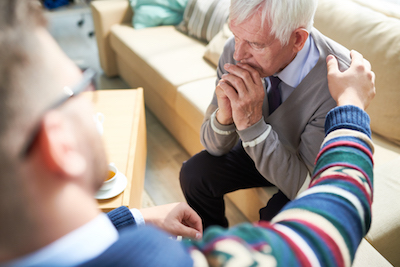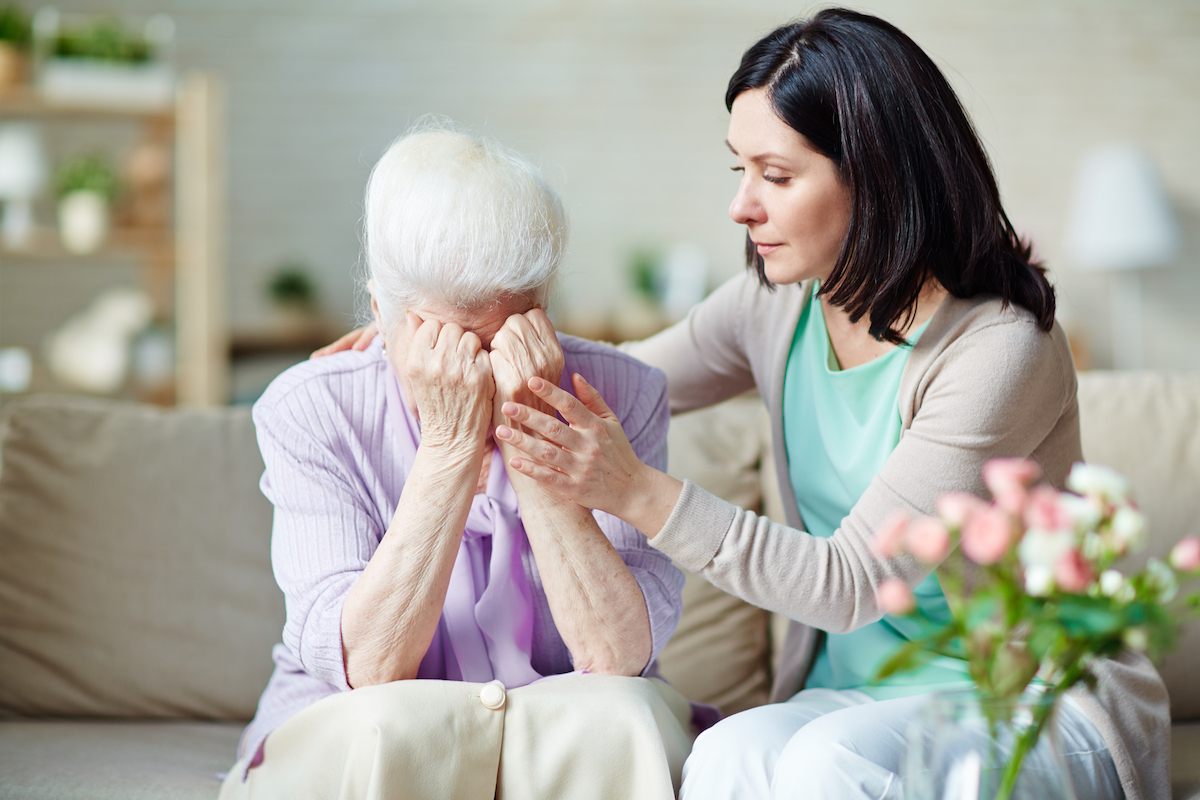Supporting Elderly Family Members Through Grief: Essential Tips
Coping with grief and loss can be challenging for anyone, but it can be particularly overwhelming for elderly family members. As we age, we accumulate more experiences and connections, making the loss of loved ones even more impactful. In this article, we will go into some tips and advice on how to support elderly family members in coping with grief and loss.
Understanding Grief and Its Impact on the Elderly
Losing someone we love can be a tough experience, especially for senior citizens. It’s not easy to come to terms with the fact that someone we love will no longer be there with us. In such a scenario, when elderly family members have to cope with grief and loss, it becomes our responsibility to support and help them in the most effective ways possible.
Grief, a natural response to loss, can be particularly challenging for the elderly. With a lifetime of cherished memories and deep connections, the grieving process for older individuals can often become more intricate and multi-layered. The accumulation of experiences and relationships throughout their lives adds complexity to their journey of healing and finding solace.
Recognizing Signs Of Elderly Family Members In Coping With Grief
Supporting elderly family members through grief is a significant responsibility, and one way to fulfill it is by understanding the signs of grief. Look out for indicators such as:
- withdrawal from activities they once enjoyed
- noticeable changes in appetite
- disturbances in sleep patterns
- more crying than usual
These signs can serve as valuable cues for providing timely support and assistance. Additionally, it’s crucial to be aware of the warning signs of depression, such as prolonged sadness or feelings of hopelessness, and be prepared to offer extra support if needed. By being attentive to these details, you can help your loved ones navigate through their grief journey with care and compassion.
Providing Comfort and Empathy
During times of grief, it is crucial to offer comfort and support to our loved ones. The simple act of providing a listening ear and a caring presence can make a profound difference in their healing journey.
One way to offer solace is by encouraging our elderly family members to share cherished memories and stories of their loved ones. This act of reminiscing can help them process their emotions and find solace in the happy moments they shared.
As we practice active listening, it is important to attentively listen and validate their feelings. Instead of offering quick solutions, let’s focus on being present and truly understanding their emotions. Sometimes, all they need is someone who can empathize with their pain and offer a shoulder to lean on.
When it comes to providing comfort, physical gestures such as hugs, holding hands, and being in close proximity can offer a sense of solace and security. These meaningful actions demonstrate our unwavering support and presence, reminding our loved ones that they are not alone in their grief.
Let us remember that offering comfort is a heartfelt act of kindness that can bring light and hope to those going through a difficult time.

How To Talk To Elderly Family Members in Coping With Grief
Meaningful conversations play a vital role in the healing process. By engaging in thoughtful discussions, you can provide support and solace to your elderly family members as they navigate their emotions and thoughts.
- Encouraging Openness
Create a safe and nurturing space that encourages them to open up and share their feelings. Initiate conversations with open-ended questions like, “How are you coping today?” This gentle approach fosters an environment where they feel comfortable expressing themselves.
- Sharing Your Own Feelings
In addition to listening, sharing your own emotions and experiences can create a deeper connection. By opening up about your own journey through grief, you can help them realize they are not alone in their struggles.
- Discussing Legacy and Closure
Broach the topic of honoring the memory of their loved ones through meaningful activities like creating scrapbooks or writing letters. This discussion can bring a sense of closure and provide a way to cherish the legacy of the deceased.
Remember, engaging in truly meaningful conversations requires empathy, patience, and a genuine willingness to listen. Your efforts can make a significant difference in their healing process.
Seeking Professional Help When Needed
Sometimes, grief can become overwhelming, and professional help might be necessary. In order to support elderly family members in coping with grief, you need to recognize when it’s time to seek assistance from trained therapists or counselors.
- Identifying Persistent Distress
If your elderly family member’s grief is consistently interfering with daily life, it might be beneficial to consult a professional.
- Researching Therapeutic Services
Look for therapists experienced in grief counseling or geriatric psychology. Their expertise can provide specialized guidance.
- The Role of Medication
In some cases, medication might be prescribed to manage intense feelings. Consult a medical professional to explore this option.
Signs Of Depression In Elderly Coping With Grief
Identifying depression in elderly family members requires careful observation and understanding of subtle changes in behavior and mood. It’s important to know when their grieving is no longer within the realm of healthy. Look out for signs such as persistent sadness, withdrawal from social activities, loss of interest in hobbies, and changes in sleeping and eating patterns. If you notice them expressing feelings of hopelessness or worthlessness, it could indicate a deeper emotional struggle.
Additionally, pay attention to physical symptoms like fatigue, unexplained aches, and decreased personal hygiene. Engaging in open conversations about their feelings and seeking professional help if symptoms persist can play a vital role in identifying and addressing depression in elderly loved ones.
Furthermore, keep an eye out for cognitive changes such as difficulty concentrating, memory problems, and increased irritability. Changes in energy levels, frequent complaints about physical ailments, and a decline in their overall enjoyment of life can also be indicators. Since depression can often be masked as physical discomfort in the elderly, it’s important to approach the situation with sensitivity and patience, providing them with the support and encouragement they need to express their emotions and seek appropriate help.

Taking Care of Yourself While Helping Family Members Through Grief and Loss
It is vital to provide support to elderly family members who are experiencing grief and depression. However, it is equally crucial to prioritize your own well-being as a caregiver. Keep these tips in mind to take care of yourself.
- Make Self-Care a Priority: always remember that you cannot give from an empty cup. Take care of yourself first without any guilt or hesitation.
- Seek Support: lean on your support network, whether it be friends, family, or support groups, to share your emotions and experiences.
- Establish Boundaries: set clear boundaries to prevent burnout. Dedicate time for yourself and engage in activities that bring you joy and fulfillment.
Final Notes on Grief and Loss
Supporting elderly family members through grief requires empathy, patience, and understanding. By recognizing their emotions, providing comfort, engaging in meaningful conversations, offering companionship, and seeking professional help when necessary, you can make a positive impact on their journey toward healing. Remember that your presence alone can bring them a sense of solace, and your efforts to understand their grief will mean the world to them.
Related Questions
How long does the grieving process typically last for elderly individuals?
Grief is a personal journey and varies from person to person. It’s important to offer support for as long as needed.
Should I avoid talking about the deceased to prevent more pain?
No, avoiding the topic can make them feel isolated. Bring up the deceased when appropriate, allowing them to share their memories.
How can I help my elderly family member if they reject my attempts at comfort?
Respect their boundaries and let them know you’re there whenever they’re ready to talk. Persistence should be balanced with patience.
When should I be concerned about their grief turning into depression?
If the elderly individual exhibits persistent symptoms like prolonged sadness, loss of interest, and significant changes in behavior, seek professional help.


